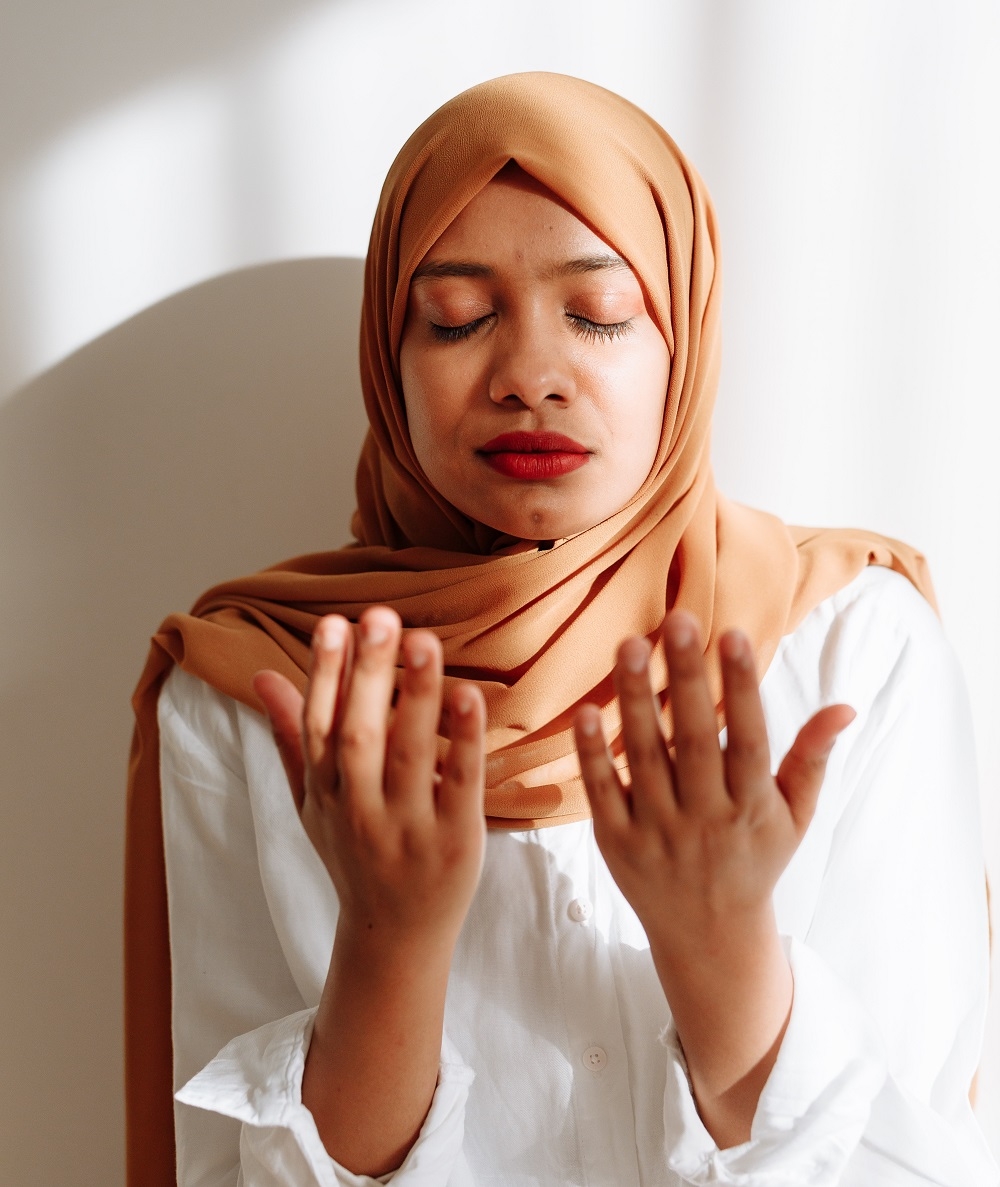5 Ways Living a Shukr (Gratitude)-Based Life Helps Your Physical Well-Being
Lifestyle
|
Nov 15, 2022
|
4 MIN READ

Image source: Pexels; photo by Artem Podrez
For many people, November brings the impending feeling of dread that “winter is coming.” But for me, the chill in the air, the crispy fallen leaves and the annual Charlie Brown Thanksgiving special fills me with gratitude. In our family, it’s forced family time – games of touch football, movies in front of the fireplace, and comfort foods we only bring out at this time of year.
This is not to say that it’s always rainbows, butterflies and unicorns at the Hasan House. Half of us (ok, probably more than half) have bouts of seasonal affective disorder, or S.A.D., throughout the winter, and holding on to feelings of gratitude can sometimes be challenging. Most of us have been advised to focus on or lean into gratitude at some point in our lives. But how many of us understand the physiological benefits of it?
Understanding HOW gratitude improves mental and physical health is essential. Especially now with mental health issues on the rise. Here are five ways gratitude physically affects us for the better.
1. Gratitude releases toxic emotions.
I am going to take you back to AP Bio, so bare with me here. The limbic system is the part of the brain responsible for all emotional experiences. It consists of the thalamus, hypothalamus, amygdala, hippocampus and cingulate gyrus. Studies have shown that the hippocampus and amygdala – the two main sites regulating emotions, memory and bodily functioning – get activated with feelings of gratitude.
This means that those parts of the brain LIGHT UP on MRIs when feelings of gratitude are expressed.
2. Gratitude reduces pain.

Image source: Unsplash
"Counting Blessings vs. Burdens,” (Emmons & McCullough, 2003) a study evaluating gratitude's effect on physical well-being, indicated that 16 percent of the patients who kept a gratitude journal reported reduced pain symptoms and were more willing to work out and cooperate with the treatment procedure.
A deeper dig into the cause reveals that by regulating the level of dopamine, gratitude fills us with more vitality, thereby reducing subjective feelings of pain. In other words, when you feel grateful, that emotion supersedes any negative feelings you may have, causing the perception of less physical pain!
3. Gratitude improves sleep quality.
Anyone that knows me knows I am OBSESSED with sleep and sleep health. So, I was stoked to learn that gratitude helps IMPROVE sleep quality. Hypothalamic regulation triggered by gratitude helps us get deeper and healthier sleep naturally every day.
“A brain filled with gratitude and kindness is more likely to sleep better and wake up refreshed and energetic every morning” (Zahn et al., 2009). This is likely because being thankful allows our mind to relax, inducing a conducive environment for natural sleep.
4. Gratitude aids in stress regulation.

Image source: Pexel
McCraty and colleagues (cited in McCraty & Childre, The Grateful Heart: Psychophysiology of Appreciation, 2004), in one of their studies on gratitude and appreciation, found that participants who felt grateful showed a marked reduction in the level of cortisol, the stress hormone. Significant studies have established that we can handle stress better than others by practicing gratitude. By merely acknowledging and appreciating the little things in life, we can rewire the brain to deal with the present circumstances with more awareness and broader perception.
5. Gratitude reduces anxiety and depression.
By reducing stress hormones and managing autonomic nervous system functions, gratitude significantly reduces symptoms of depression and anxiety. At the neurochemical level, feelings of gratitude are associated with better control or regulation of the prefrontal cortex, the portion of the brain responsible for managing negative emotions like guilt, shame and violence. With the ability to regulate these negative feelings, we are more likely to keep anxiety and depression at bay.
There are multiple ways we can incorporate gratitude into our everyday lives. The beauty of Islam is that we are mandated at least five times a day to take a break from our crazy hectic day and spend it in prayer and reflection. When you bring your hands together in du’a, take a minute and mentally thank Allah (S) for the abundant blessings in your lives.
Another option is keeping a gratitude journal and spending a few moments at the beginning or end of your day to give thanks, obviously for the big things but for the micro-moments as well (because it is the collection of micro-moments that build happiness and contentment).

Image source: Pexel
The practice of writing gratitude letters is another thing I want to offer as an option for cultivating a “gratitude attitude.” This is a more exact practice of writing a thank you letter to an actual person using concrete examples of why you are grateful for that person in your life. In my spiritual mediation practice, we use this method a lot when trying to break down emotional walls between angry parties. You’d be surprised by how people start to soften when forced to face the positive attributes of someone they are upset with.
Regardless of how you ultimately decide to embrace your gratitude attitude, I hope that if we all spent a few minutes of every day doing this, we may be a more uplifted and positive community. We at Mommying While Muslim Podcast are extremely grateful to YOU, our “mama community,” and to Haute Hijab for giving us a platform to help educate and empower our Muslim Mom Sisters.
XOXO
Until next time,
Zaiba
Zaiba Hasan is part of the dynamic duo behind the award-winning podcast, Mommying While Muslim. She is a spiritual parent coach at Emerge Parenting Solutions, interfaith mediator and sports mama extraordinaire. Look for her on the baseball fields and basketball courts in the DMV (Washington, D.C.-Maryland-Virginia) area cheering from the sidelines.
Subscribe to be the first to know about new product releases, styling ideas and more.
What products are you interested in?


